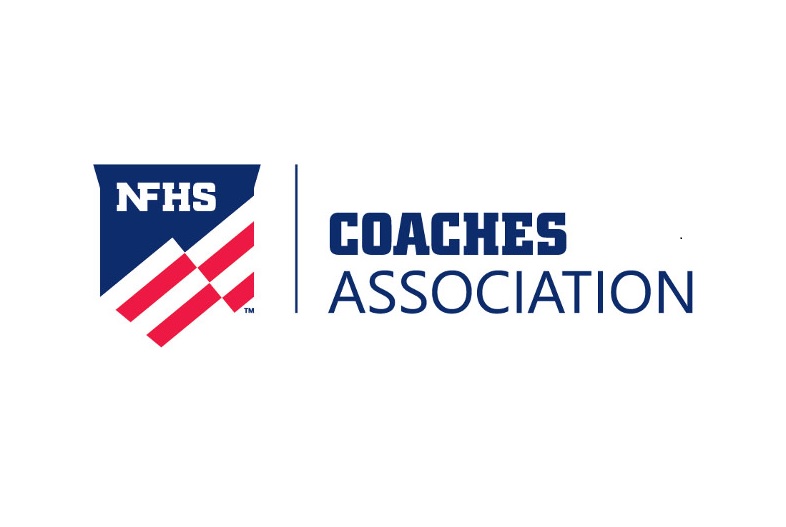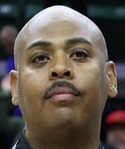
Teaching ABC's of Pressure Situations
October 30, 2013
 By Eric Martin
By Eric Martin
MSU Institute for the Study of Youth Sports
Coaches have seen the signs: Athletes having too much or not enough energy prior to a game, quickening breathing, sweating more than usual, being unable to focus on important details, and having their minds wander from the present to “what if” scenarios and past mistakes.
Athletes deal with pressure in many ways. Although some handle it well, many do not have the tools to perform to their full abilities in these situations. Most athletes place a high importance on succeeding in sport, and when athletes reach regional, district, or state championships, the pressure they feel may become overwhelming.
How athletes handle this increased pressure can often mean the difference between winning and losing. Therefore, helping athletes deal with it is something coaches should consider prior to athletes encountering these high-stakes situations.
Unfortunately, there is no magic elixir for helping your athletes work under pressure. But if these ABC’s of pressure situations are followed, your athletes will be much better equipped to cope, and the chances of their performance levels dropping significantly will be reduced.
1. Act the Part
How you as coaches act influences your athletes. For better or worse, athletes notice your emotions in response to these situations and take cues from how you handle pressure.
You are a demand on your players’ attention – you can add or reduce your players’ perceived stress by how you act. Understanding the demand you place on players requires self-awareness. How do you respond when a key call goes against you? Do you have nervous habits that athletes may notice? What messages are you providing to your athletes – both verbally and non-verbally? Athletes pick up on these non-verbal cues, so you must be aware of how you respond to these situations.
It is important to remember emotions are not always negative – rather acting differently than normal can be a signal to your athletes that you are stressed. Strive to be consistent in your actions – whether you are coaching during a preseason match or championship contest. These situations are stressful for you too, but you need to be the constant your athletes look to for stability.
2. Breathing – Remember to do it
It seems like a simple thing, but when athletes’ emotions are running high, they forget how to breathe – or, at least, forget how to breathe properly. Worse, they often think they are breathing normally but don’t notice breaths are becoming shorter and shallower. Teaching athletes to breathe properly when not in pressure situations will help them have the tools to rely on when they encounter more intense scenarios.
For proper breathing, athletes need to do so from the belly and not the chest. The pace of this breathing should be 6-2-7; that is, have athletes take a deep breath from the abdomen for six seconds, hold for two seconds, and then finally slowly exhale completely for seven seconds. This breathing strategy is ideal for pregame situations to quiet nerves and help athletes get ready to play, but a condensed version (3-2-3) can also be used for quick breaks in the action like a timeout or court change.
3. Control the controllables
During times of high pressure, athletes sometimes feel they do not have control over their own performances. It is important to help athletes focus on things they can control and not worry about those that cannot be changed or are outside their influence.
Instead of athletes dwelling on aspects that are out of their control like unusual game times for championship finals or a referee’s bad call, help them focus on completing their warm-up preparations and how they can respond to poor calls. Helping focus athletes’ attention on things they can control will help them better handle pressure situations and leave them feeling less helpless
Athletes’ emotions are typically out of their control, but how they view them and respond to these emotions are under their control. Author and preacher Charles R. Swindoll said, “Life is 10 percent what happens to you and 90 percent how you react to it!” Be sure your athletes know how to respond when difficult situations arise.
Conclusion: Fearlessness is an assembly
Not all athletes react to pressure situations in the same manner, but all athletes can benefit from these simple suggestions. Remember to ACT THE PART of how you want your athletes to act, teach your athletes proper BREATHING techniques, and help athletes focus on CONTROLLING THE CONTROLLABLES.
Good preparation is the key to performance. Increase self-monitoring and give athletes the tools to succeed in pressure situations; they, in turn, can be in a better position to succeed. However, like any skills, they must be practiced accordingly, and one session will not solve all issues. Devote the time to train athletes in these skills, and when the need arises they will have them ready to use.
Good luck this season!
Martin is a third-year doctoral student in the Institute for the Study of Youth Sports at Michigan State University. His research interests include athlete motivation and development of passion in youth, sport specialization, and coaches’ perspectives on working with the millennial athlete. He has led many sessions of the MHSAA Captains Leadership Clinic and consulted with junior high, high school, and collegiate athletes. If you have questions or comments, contact him at [email protected].

Michigan Leaders in 3 Sports Earn National Honors from NFHS Coaches Association
By
Geoff Kimmerly
MHSAA.com senior editor
January 16, 2024
Detroit Cass Tech boys basketball coach Steve Hall, Farmington Hills Mercy girls golf coach Vicky Kowalski and East Grand Rapids girls swimming & diving coach Butch Briggs and have been named a 2022-23 National Coach of the Year in their respective sports by the National Federation of State High School Associations (NFHS) Coaches Association.
They were selected by a committee including representatives from all eight NFHS sections – Michigan is part of Section 4 with Illinois, Indiana, Iowa and Wisconsin.
The following brief bios include an excerpts from each honoree’s coaching philosophy, which nominees were asked to submit after being identified as candidates for the awards.
 Steve Hall guided Detroit Cass Tech to its first MHSAA Finals championship last season as the Technicians capped a 28-1 run. He’s 160-30 in his eighth season directing Cass Tech, with his team 9-0 this winter, and he has a career high school record of 370-103 having also coached at Detroit Rogers (1996-97 through 2004-05) and Detroit Northwestern (2005-06 through 2007-08). He led Rogers to three straight Class D championships from 2003-05, led Northwestern to its first Detroit Public School League championship in 30 years and Cass Tech to its first in the PSL in 19 seasons. He also coached collegiately as an assistant at Duquesne University (2008-09 through 2011-12) and Youngstown State University (2011-12 through 2014-15) before taking over at Cass Tech for the 2015-16 season. He has received multiple state Coach of the Year awards during his tenures at Rogers and Cass Tech, and also serves the latter as athletic director and boys cross country coach.
Steve Hall guided Detroit Cass Tech to its first MHSAA Finals championship last season as the Technicians capped a 28-1 run. He’s 160-30 in his eighth season directing Cass Tech, with his team 9-0 this winter, and he has a career high school record of 370-103 having also coached at Detroit Rogers (1996-97 through 2004-05) and Detroit Northwestern (2005-06 through 2007-08). He led Rogers to three straight Class D championships from 2003-05, led Northwestern to its first Detroit Public School League championship in 30 years and Cass Tech to its first in the PSL in 19 seasons. He also coached collegiately as an assistant at Duquesne University (2008-09 through 2011-12) and Youngstown State University (2011-12 through 2014-15) before taking over at Cass Tech for the 2015-16 season. He has received multiple state Coach of the Year awards during his tenures at Rogers and Cass Tech, and also serves the latter as athletic director and boys cross country coach.
“My coaching philosophy is ‘Learning Life Skills Through Basketball.’ I have encountered many youngsters that value basketball more than anything. Therefore, I use basketball as a carrot to dangle to help them acquire life skills and other necessities that can benefit them in their lives. Ultimately, when the ball stops bouncing they may be quality fathers, husbands, principals, CEOs, etc., and positive contributors to society. My motto is, “Be better today than yesterday and better tomorrow than today.” My athletic philosophy is scholarships and championships in that order! We love to win. But winning is not only on the scoreboard but also in life. Accountability, Reliability, Dependability and Responsibility. “Do what you are supposed to do, be where you are supposed to be, every play and every day.” God has blessed me with high morals, values and unmatched energy to leave my student athletes better than I found them.”
 Vicky Kowalski completed her 46th season this fall coaching Farmington Hills Mercy’s girls golf team, and led the program to its second-straight Lower Peninsula Division 2 championship and fourth MHSAA Finals title overall. Her teams also have won seven Regional and 21 league championships and were 220-50 in matches entering the season. She has received several coaching awards over the years including statewide awards from the Michigan Interscholastic Golf Coaches Association (MIGCA) and Michigan High School Coaches Association (MHSCA). Kowalski also is in her 22nd season as Mercy’s girls bowling coach and has coached multiple subvarsity seasons of basketball and volleyball as well. She’s been inducted into Halls of Fame by both MIGCA and the Michigan High School Interscholastic Bowling Coaches Association (MHSIBCA).
Vicky Kowalski completed her 46th season this fall coaching Farmington Hills Mercy’s girls golf team, and led the program to its second-straight Lower Peninsula Division 2 championship and fourth MHSAA Finals title overall. Her teams also have won seven Regional and 21 league championships and were 220-50 in matches entering the season. She has received several coaching awards over the years including statewide awards from the Michigan Interscholastic Golf Coaches Association (MIGCA) and Michigan High School Coaches Association (MHSCA). Kowalski also is in her 22nd season as Mercy’s girls bowling coach and has coached multiple subvarsity seasons of basketball and volleyball as well. She’s been inducted into Halls of Fame by both MIGCA and the Michigan High School Interscholastic Bowling Coaches Association (MHSIBCA).
“I have always believed in participation. On all the teams I have coached, everyone plays – no one sits the bench. All my athletes have their opportunities to grow in the sport. I have always preached dedication and sportsmanship. The athletes practice well to perform well. They encourage teammates as well as competitors. I enjoy interaction with other coaches. We share coaching techniques and ideas for improving team performance.”
Milton “Butch” Briggs has led the East Grand Rapids girls swimming & diving team to a record 26 MHSAA Finals team championships, the first in 1978 and including six straight from 1981-86 and the program’s current three-year title streak. His girls program also has celebrated 105 individual or relay Finals champions and clinched 33 league team titles. Briggs has received several coaching awards, including nationally for his sport (girls and boys combined) from the National High School Athletic Coaches Association (NHSACA) in 2000 and the NFHS Coaches Association for boys swimming & diving in 2011. He entered this past fall season with a dual meet record of 522-65-1 over his career, which has spanned 49 years total, and his boys teams have won 12 MHSAA Finals. Briggs also has served as an assistant track coach at multiple schools and as MISCA president, and is in the MHSCA Hall of Fame.
“My coaching philosophy has been, and continues to be, a work in progress. I have formed relationships with hundreds of amazing young people. They have taught me life lessons in real time and real situations. As a neophyte coach, the experience revolved around winning. We worked together as a team, supported each other in and out of the pool, and won often. Thankfully, I became aware of the value within each athlete. Today, I attempt to interact with each athlete at every team activity and follow their progress in non-swimming endeavors. In short, when I removed my ego from the team's expectations and outcomes, the entire atmosphere was much more enjoyable and productive. And we are still capable of being successful. The Lord has put me in the right place at the right time.”
Six more Michigan coaches earned honors in Section 4. Stefanie Kerska was honored in boys swimming & diving after leading Ann Arbor Pioneer to its third-straight Lower Peninsula Division 1 Finals title under her leadership, and Asa Kelly was recognized in boys track & field after leading Benzie Central to the LPD3 Finals championship. Mt. Morris volleyball coach James Pender was honored after leading his team to the Division 2 Quarterfinals in 2022, when he also eclipsed 1,000 career coaching wins in the sport, and Traverse City St. Francis’ Julie Duffing was awarded in cross country after leading her program to the 2022 LPD3 Finals championship, the program’s second under her leadership. Haslett/Williamston girls lacrosse coach Chad Pastor was honored after leading his team to the Division 2 Semifinals last spring, and Hartland competitive cheer coach Candace Fahr was recognized after leading her team to the MHSAA Finals for the fourth time in her six seasons guiding the program.
The NFHS has been recognizing coaches through an awards program since 1982.

